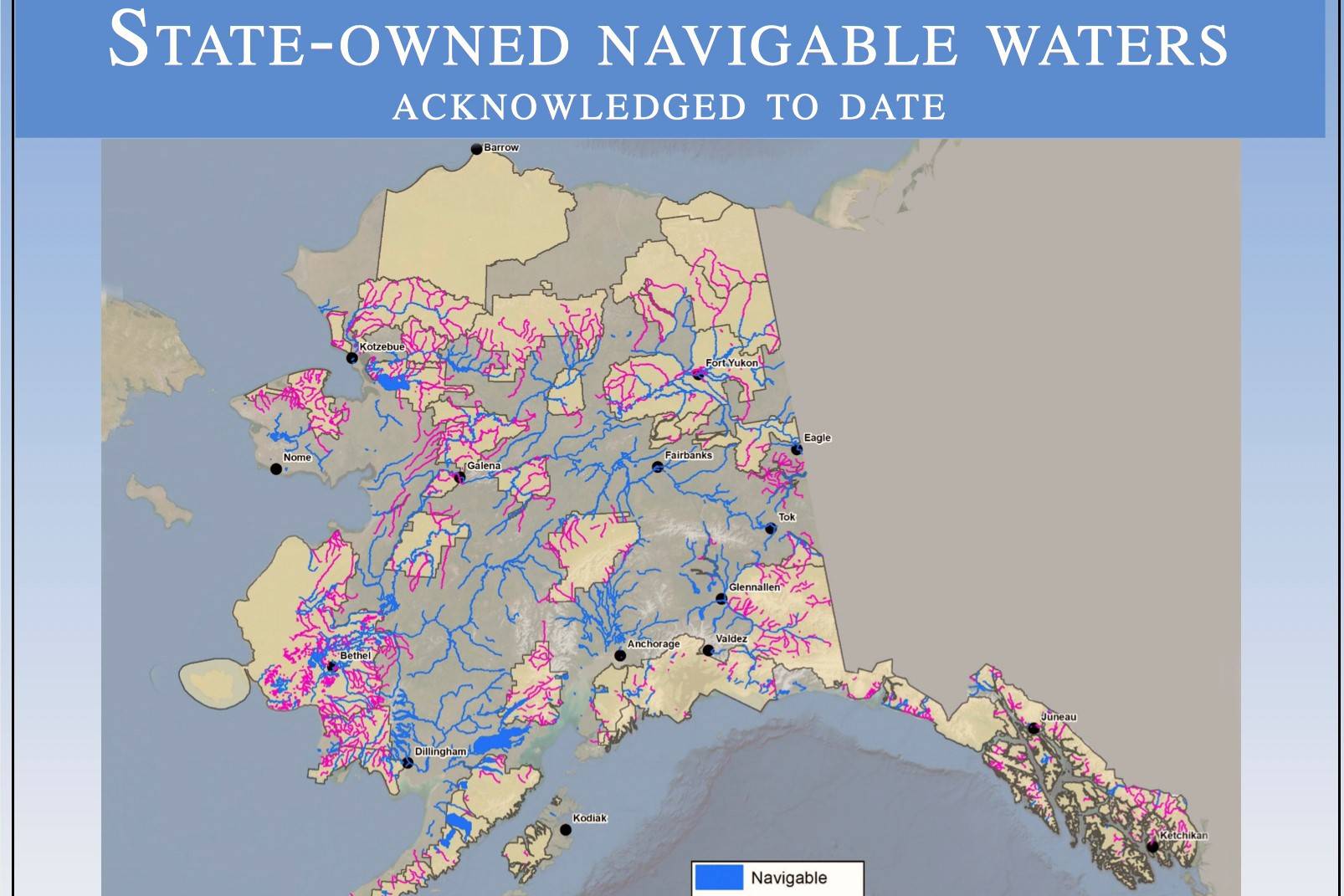By Gov. Mike Dunleavy
Sixty-two years ago, Alaska traded its status as a territory for full statehood and a promise — the promise of a prosperous future grounded in the freedom to access and develop our common natural resources.
While most know the 1959 Statehood Act conveyed 104 million acres of land to our new state, the U.S. Constitution also automatically grants new states ownership of the “navigable waters” and submerged lands inside their borders. In a frontier state like ours, control of the rivers and streams that serve as our commercial highways is essential to prosperity.
As the decades passed, however, federal authorities have refused to acknowledge this reality. They have dragged Alaska through a costly, multi-year process — for each waterbody — to get what has been ours since 1959. They oppose our claims at every turn, ignoring procedures and common-sense compromises that could dramatically speed the process.
To date, the federal government has only acknowledged Alaska’s clear title to 9% of the lands that underlie the 800,000 miles of navigable rivers that crisscross our state, and just 16% of the 30 million acres underneath our navigable lakes. Despite clear legal evidence and repeated losses at the Supreme Court, they have refused to loosen their grip.
This willful disregard of Alaska’s rights is not only wasting money, but is hurting real people. Alaskans have been ticketed and detained by federal officials, and even had guns drawn on them. Guiding businesses are told they can’t take clients onto submerged lands, and Alaskans are prevented from mooring watercraft on shorelines. These illegal federal restrictions on the use of state lands and waters must end.
It is time for Alaskans to unlock Alaska. After decades of federal obstruction and delay, I am asserting the state’s control of the navigable waters and submerged lands we received at statehood, and our right to manage them in Alaskans’ best interests. It is my hope federal authorities will abandon their strategy of litigation and delay, and instead choose to save millions of dollars by working cooperatively with the State.
Soon, Alaskans will be able to visit a state website to pinpoint where they may freely travel. Any attempt by federal authorities to issue citations or harass Alaskans who are legally using these waters will be met by litigation from the state of Alaska. Following in the path of John Sturgeon, who won two unanimous decisions before the Supreme Court on this very issue, the State will provide a legal shield to Alaskans for as long the Biden administration wishes to lose cases.
I have sent the president a letter asserting state ownership of our navigable waters and submerged lands and expressing my intent for the State to exercise its authority to manage them under state law. I have also directed Natural Resources Commissioner Corri Feige to extend to Interior Secretary Deb Haaland and the heads of federal land management agencies an invitation to cooperate with us to resolve this longstanding issue. In the meantime, she will insist that they cease oversight of these resources and refer users to state mangers.
My actions are grounded on three clear legal principles. First, the U.S. Constitution’s “equal footing doctrine” gives the state of Alaska the same rights other states enjoy in controlling the submerged land underneath rivers and lakes. Any body of water that was or could have been navigable for commercial purposes when we joined the Union qualifies under this doctrine.
Second, the Alaska National Interest Lands Conservation Act (ANILCA) of 1980 reserved 150 million acres of federal land as new national parks, preserves, forests, or monuments, but specifically exempted state and private water and land inside these areas from most federal regulation.
Finally, John Sturgeon’s second Supreme Court victory in 2019 clarified ANILCA, making it clear that federal regulations do not supersede state ownership within ANILCA-established conservation units. It also rejected claims that laws affecting federal land in the Lower 48 automatically apply in Alaska, clearly acknowledging our unique circumstances.
For too long, we have waited for federal land managers to fulfill their duty and acknowledge that Alaskans, not federal bureaucrats, are the true owners of Alaska’s navigable waters and submerged lands. With the Constitution, federal law, the Supreme Court, and common sense on our side, we are standing up to the federal government and asserting our rights to manage and use our resources for recreation and commerce — rights that were ours at statehood.
Alaska’s destiny lies in full ownership of our natural resources. These actions are a first step in “Unlocking Alaska” — an initiative that I will continue to advance in the coming months. My administration will not rest until Alaska has achieved the foundational promises of statehood, and every Alaskan is granted unfettered access to our lands and waters.
Mike Dunleavy is the 12th governor of Alaska.

